The History Of Magneto: Why and How He Echoes Real World Tragedy
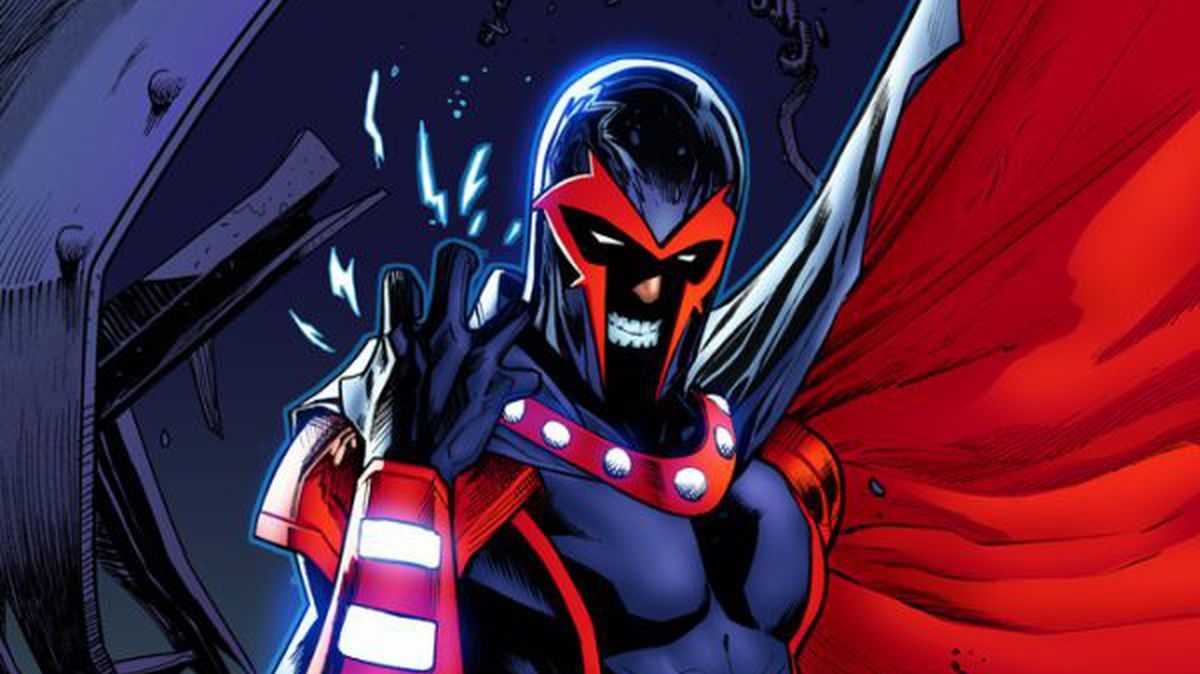
Join the community on Reddit for the latest Marvel & DC news!
The history of Magneto is longer and more layered than most in comics. He, while appearing evil, has motives and drivers that very few characters have. He has teetered on both the edge of what it means to be good and bad. For as long as the X-Men have worked to bring about peace between mutants and humans, Magneto has looked to create a world in which mutants rule over humans. Magneto is widely considered the greatest villain in not only the X-Men catalog of villains but in the catalog of comic book villains everywhere. As their enemy, his ideals represent everything that the X-Men oppose and he is responsible for some of their most crushing defeats.
Just look at this list:
- He ripped the Adamantium from Wolverine’s skeleton
- He nearly killed Kitty Pryde during one of her first missions
- Magneto used the Mutant Hunting Sentinels against the X-Men
- He killed his own son, Quicksilver
At his core, Magneto is the very person that he swore he’d never become. Although he is, on occasion too blinded by his own hatred, he wants exactly what the X-Men want…peace among the people. These, along with a few other things is what makes him such a fascinating character study.
The history of Magneto begins during the formative years of Marvel. Max Eisenhardt, Magneto first appeared inside the pages of X-Men #1 back in 1963. He was created by two masters of the industry in Jack Kirby and Stan Lee. Little could the two have predicted just how important he’d become.
As a young man, Max Eisenhardt spent many of his formative years inside a concentration camp at Auschwitz. He was left without parents after the two succumbed to the brutality and punishment inflicted by the rise of the Nazi Party. While in the camp, Max was forced to work in Sonderkommandos, or the area where the dead bodies were looked over for valuables and then disposed of. Such cruelty could’ve broken a person but Max is a survivor and survive he did.
While in the camps Max spotted his high school friend and eventual wife, Magda. Fuelled by purpose, Max used his intelligence to keep himself and Magda alive. To do this meant that he became a skilled negotiator and traded the valuables he collected from the dead bodies to the Nazi soldiers for information and favors. As the War drew to a close, Max and Magda successfully fled Auschwitz and began to build their new life together.
With his freedom, Max made himself a vow to never let “his people” be harmed in such ways again. What he didn’t foresee, however, was that his mutant powers were about to manifest and change his life forever.
Together, Max and Magda moved to the quiet town of Vinnitsa where they conceived their first child, Anya. While at work, Max learned that he had been cheated by his employer for most of his pay. In retaliation, he, without physically doing so, threw a crowbar at his employer, thereby killing him. Fearful over what Max was, those who witnessed the murder came together as a small mob and burned his house to the ground. Sadly, while Magda was able to escape the blaze, his daughter Anya was not. Max arrived home only to be held down by the mob and forced to watch as Anya’s dead body fell from the window above. Furious, he unleashed his powers and killed everyone at the site, save for his wife, Magda. Now terrified by the man who stood in front of her, Magda left Max and fled to Wundagore Mountain.
With no one left, Max buried Anya in the ground.
While on Wundagore, Magda learned that she was, in fact, pregnant with twin babies. The babies, Wanda (Scarlet Witch) and Pietro (Quicksilver), were born and never told who their father was.
Alone and afraid to be made as a mutant, Max Eisenhardt changed his name to Erik Magnus Lehnsherr and began a trek to Israel. While in Israel, he met and befriended a man who would become both his best friend and most feared enemy. Of course, I refer to Charles Xavier. The two became extremely close with their friendship often leading to debates about whether or not it would be good for superpowered individuals to rise into positions of power. Eventually, the two revealed that not only were they each a mutant but also that each was the most powerful mutant in their class. Even though they were more alike than either knew, their disagreements caused them to part ways.
And this moment, their parting caused one of most interesting friend/enemy dynamics in all of comics.
The two, like Batman and Ra’s al Ghul, have tremendous respect for one another. Even though the way they see the world and their methods in which they participate in it are different, I’d be remiss to say that they aren’t brothers. And if you think about it, that’s the reason the two works so well as enemies.
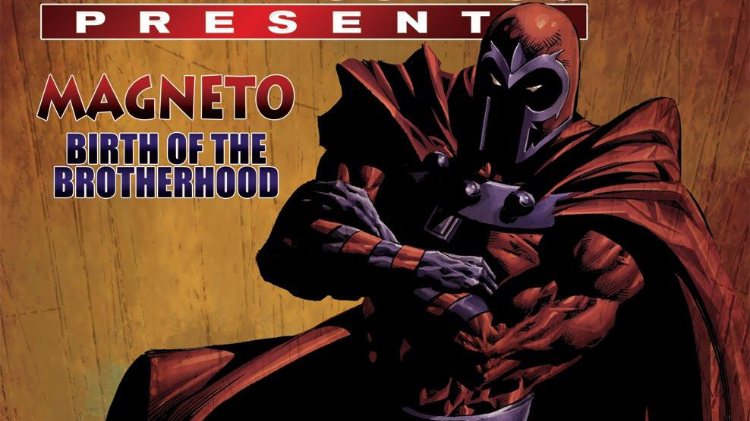
In an interview with Rolling Stone, creator Stan Lee said this of the history of Magneto and his relationship to the X-Men, “…my favorite villain was Magneto. And I loved the idea of the X-Men being good mutants, and then we’d get a bunch of bad mutants, and we’d make it seem as if the bad mutants had a point there. The human race hated them and feared them and shunned them and was trying to get rid of them, so why should they take it laying down? Why didn’t they fight back?”
As the history books have shown, Stan Lee’s questions, the ones he forces through Magneto, are exactly right.
“Whereas Professor Xavier said, we’ve gotta all learn to live together, no matter how different we are. And I felt that represented some schools of thought that exist among the human race now. And it was fun to toy with that concept. And basically, the main idea was to show that bigotry is really a terrible thing, and we should all get along with each other no matter how different we are. That was the main objective. If you
Eventually, Max, now Erik, took the name Magneto and became a living example of both mutant existence and superiority. As Magneto, he leaped into the spotlight and transformed into a rallying point for all mutants. He wanted them to come out of hiding and face that which fears them most…humans. By doing this, he aimed to show the world that mutants do exist and that they will no longer be persecuted for who they are.
From Magneto, himself, “I have been known by many names. Max Eisenhardt. Erik Lensherr. Magnus. Magneto. Each name marks its own sin, and one day I will answer for those offenses. But not today. Only my actions…what I do in the name of all mutants…hold any real meaning.”
And this paralleled the time he was created in.
Let me explain.
The 1960s was a period of advancement for the United States. It saw the decades
The Jim Crow Laws were State and Local Laws that saw racial segregation among society. That is, the Laws were put into place by White-dominated political parties to ensure racial segregation in all public facilities. To enforce the laws, a legal document that was known as “separate but equal” was created to show that segregation did not violate the Fourteenth Amendment to the United States Constitution. The Fourteenth Amendment, for any who don’t know, stated that all Citizens of the United States are guaranteed equal protection under the law. Even though by today’s standards this makes no sense, at the time as long as the facilities, transportation, and the like were equal towards all races, those in charge could segregate people in whichever way they chose.
Enter Magneto and the X-Men.
Without a doubt, the 1960s X-Men comics and their stories rooted themselves in politics and oppression. And nobody in comics exemplified politics and oppression quite like Magneto. Remember, having lived through the Holocaust and seeing the horrors of humanity, he became the focal point of everything the X-Men comics challenged. He was a voice, right or wrong, that stood against oppression and forced change. I’d argue that because of Magneto, the X-Men comic has been able to reach the heights it finds itself at today.
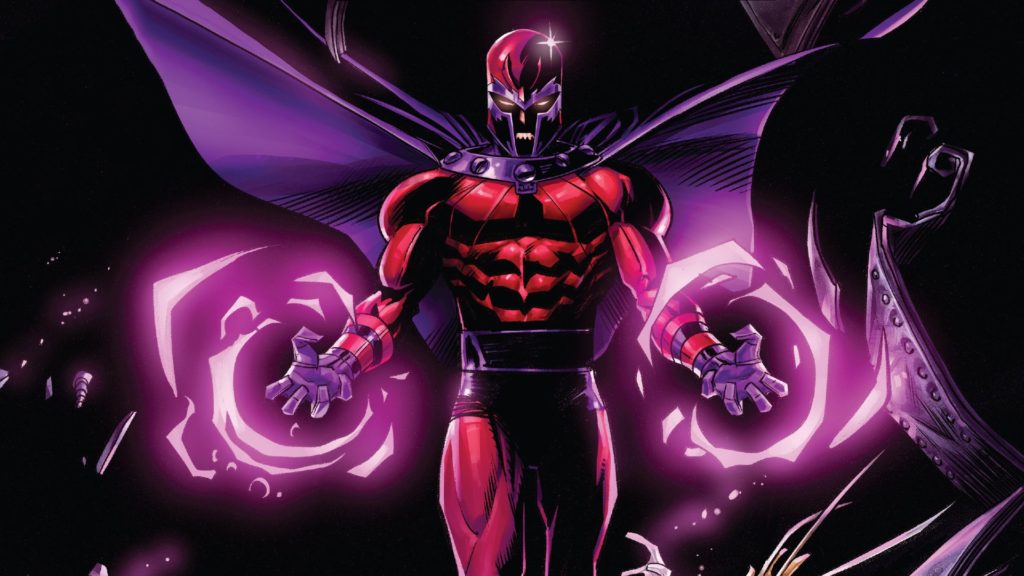
It’s tough not to see the parallels between the Civil Rights Movement, the history of Magneto, and the history of the X-Men. Although debunked by Stan Lee, many have compared Charles Xavier to Martin Luther King Jr., the idealist believing in harmony, and Magneto to Malcolm X, the man leading a movement that the world didn’t want or was ready for.
Of the topics the X-Men mirrored, Stan Lee, said this, “Let’s lay it right on the line. Bigotry and racism are among the deadliest social ills plaguing the world today…It’s totally irrational, patently insane to condemn an entire race—to despise an entire nation—to vilify an entire religion. Sooner or later, we must learn to judge each other on our own merits. Sooner or later, if a man is ever to be worthy of his destiny, we must fill our hearts with tolerance.” This, although his methods are extreme, is what Magneto fights for.
I know I’ve said it already but I want to touch on it again.
Magneto stands for everything that Charles Xavier and his X-Men do not. While the X-Men fight for peace, harmony, care for one another and those they don’t know, Magneto fights to oppress humanity and create a totalitarian regime ruled by mutants. These, his
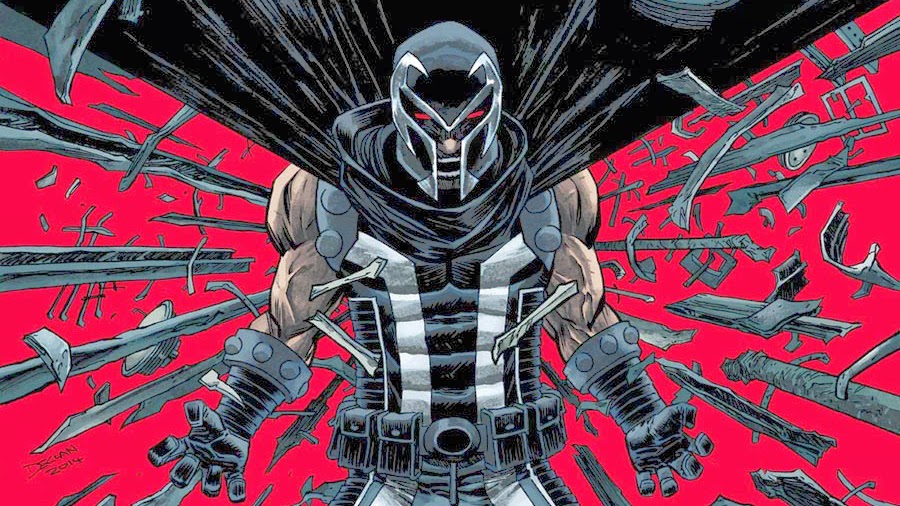
From X-Men Volume #1, Issue #4:
Xavier: We must use our powers to bring about a golden age on Earth—side by side with ordinary humans!
Magneto: Never! The humans must be our slaves! They are not worthy to share dominion of Earth with us! You have made
Xavier: The X-Men will stop
This very exchange shows exactly how the two, Charles Xavier and Magneto, differ from one another.
As a villain, Magneto doesn’t wish to be called anything but Magneto. He is not known to the world as Max, Erik, or anything else. He is Magneto. As such, he believes himself to be more mutant than those who go by names other than their mutant names. For example, Scott Summers. When not battling as Cyclops, he simply goes as Scott Summers. Even though Summers and other heroes seek lives outside of their heroic duties, Magneto can’t and won’t.
And why?
Comic book villains are often different than their superhero counterparts. While superheroes make every attempt to create a life outside of the “super” world they live in, supervillains, more often than not, don’t. Instead, they live and breathe everything that they do. It’s rare that they get married, can be found studying, lazing about at the beach, or anything other than pushing their own agendas.
Magneto is no different. Aside from his carefully crafted backstory, we don’t see him acting in a manner outside of his super
However, and please forgive the upcoming contradiction, Magneto isn’t really a villain, is he? He, for everything I’ve talked about, is an Anti-Villain. And this is a huge part of what makes him work so well. Even though his methods are extreme, he only wants mutants treated fairly. Like it or not, his intentions are noble and his reasoning is fair. He acts for the betterment of an entire race and therefore, what he’s done and who he’s hurt has never been about personal gain. It’s been about righting a wrong. At his core, he wants what Xavier wants.
If I haven’t convinced you of his good intentions, remember this. The history of Magneto shows that he has served alongside and led the X-Men when the time called for it. More than that, he’s stopped some of the world’s biggest disasters.
Just look at this.
In one story, Cyclops had moved the X-Men to his Utopian Island off the coast of San Francisco. Magneto, who had recently realigned himself with the X-Men, was urged by Cyclops to step into the city and attempt to make a good name for himself. When an Earthquake hit San Francisco, Magneto stepped outside and used his control over metal to negate the effect of the Earthquake. That is, people, buildings, and even vehicles were saved from injury, death, and damage.
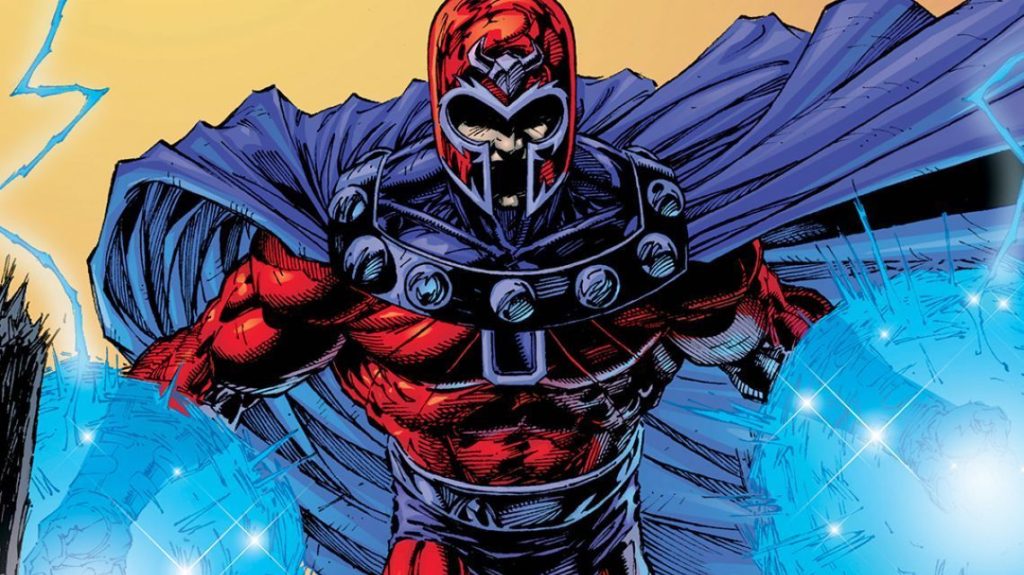
What I’m telling you is that even though he was introduced as a villain, Magneto is an Anti-Villain who has become whatever the writers require him to be.
At the most simple of levels, the character of Magneto is an exploration of the Jewish identity. His character has become as synonymous with trauma, tragedy, and the worst that humanity has to offer
Like a good bottle of whiskey, Magneto has benefited from time. Due to his history being carved out over 50 years of publication, Magneto has grown from a one-dimensional villain produced by the Silver Age to the layered and detailed character we know him as today. Magneto lives with everyday guilt. He lives with the fact that his powers didn’t manifest in time to save his parents. He lives knowing that those closest to him died in camp yet he survived. Magneto watches every
Am I right?
Not only is the history of Magneto special but his place in comics is also special.
If not for him and what he stood for, Chris Claremont, Mike Carey, Louise Simonson, Jim Lee, Joss Whedon and everyone else tied to the X-Men comic would never have had the opportunity to write their takes on the team. If you’re thinking sure they would’ve, remember this. Had Magneto not been such a captivating character, the second attempt at the X-Men title, (after the first one bombed miserably) may never have worked out. Certainly, there’s an argument to be created that questions why, if the history of Magneto is so captivating, did the original series never achieve success? But to that I answer, he and the X-Men were ahead of their time.
Magneto personifies everything that makes comic books compelling. He allowed Marvel to comment on many real-world issues without the reader ever being wise to the fact that Marvel was commenting on real-world issues. He is not a hero or a villain but instead an Anti-Villain. Magneto has lived through more than most will ever live through and because of it, sees the world in a way many cannot begin to understand. Because of him, the X-Men are where they are today. It was he that was featured as the antagonist in Bryan Singer’s original X-Men movie and it
I’ve said it at the conclusion of everyone of these extended history articles, and I’ll say it again here. Comic books are the gateway to understanding the world just a little bit better.
So, may they be around forever.
Cheers,
Joel
Liked this article? Join the community on Reddit for the latest Marvel & DC news!

